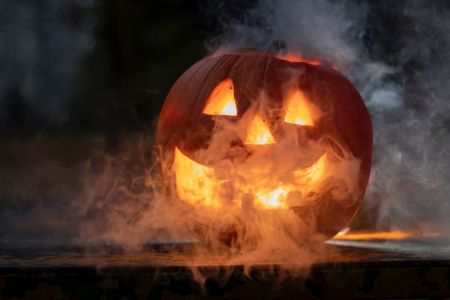Only 13% of pastors advise Christians to avoid Halloween completely, survey finds

The majority of Protestant pastors in the United States do not advise Christians to avoid Halloween entirely, and many instead encouraged churchgoers to use the holiday to build relationships with neighbors and share the Gospel, according to a new poll.
A new survey of over 1,000 Protestant pastors in the U.S. released this month by Lifeway Research finds that 71% say they encourage church members to invite friends or neighbors to church events on or near Halloween, such as a fall festival, trunk-or-treat or judgment house.
Nearly three in five pastors (58%) say they want church members to build relationships with neighbors who trick-or-treat, and about a third (34%) encourage church members to hand out Gospel tracts to trick-or-treaters.
Just over one out of 10 pastors surveyed (13%) say they discourage their church members from participating in Halloween festivities, an increase from 8% of pastors who said the same in a 2016 survey.
Across the board, Lifeway finds that pastors are more likely to try to influence congregants' engagement in Halloween in 2022 compared to 2016. According to Lifeway, the largest increase is among pastors who encourage church members to hand out Gospel tracts to trick-or-treaters, up from 26% in 2016.
Compared to 2016, higher percentages of pastors also said they encouraged church members to invite friends to church events (67% to 71%) and build relationships with trick-or-treaters (52% to 58%).
The Lifeway poll comes as a Numerator survey suggests that 78% of Americans say they will "definitely" or "probably" celebrate Halloween this year.
"Few pastors simply ignore the fact that so many Americans participate in Halloween celebrations," Lifeway Research Executive Director Scott McConnell said in a statement. "Most pastors focus on the social nature of these celebrations, encouraging their congregations to engage with others outside their church."
According to a Lifeway analysis, the increase in pastors trying to influence churchgoers' involvement in Halloween could indicate that churches are recovering from the impact of COVID and trying to utilize the holiday as an opportunity to "reconnect with their members and communities."
"Whether it comes from a desire to reconnect with their community after the pandemic prevented much of this or from deepened convictions about the holiday itself, pastors appear more resolute in their convictions around Halloween," McConnell said.
The survey also shows that younger pastors — ages 18 to 44 and 45 to 54 — are more likely to encourage their congregations to engage in Halloween by inviting friends and neighbors to church events or building relationships with neighbors who trick-or-treat.
But older pastors — 55 to 64 and older — are more likely to encourage their churches to hand out Gospel tracts to trick-or-treaters.
"The majority of even the smallest churches offer church events this time of year and encourage their members to invite people from the community," McConnell says. "In a society that is increasingly distant and divided, most pastors see opportunities within the interactions that take place around Halloween."
Each year during the Halloween season, Christians debate whether they should celebrate, and if they should, then how.
Halloween originated from the ancient Celtic festival of Samhain. The celebration was traditionally held halfway between the autumn equinox and winter solstice. It was seen as a period when the veil separating the world and the spirit realms was at its thinnest.
Many pastors warn that Christians shouldn't tempt Satanic influences by participating in Halloween. But some pastors contend that the watered-down version of Halloween celebrated today has become more about a "candy acquisition" that can be separated from demonic influences.
The Lifeway survey found that non-denominational pastors (22%) and Pentecostal pastors (20%) were over twice as likely than Lutheran (9%), Methodist (7%) and Church of Christ (7%) pastors to say they urge their congregants to avoid Halloween entirely.
African American pastors (32%) were almost three times more likely than white pastors (11%) to say they encourage their congregations to avoid Halloween celebrations altogether. Meanwhile, nearly a quarter of Hispanic pastors (24%) said they encourage churchgoers to avoid Halloween celebrations completely.
White pastors (73%) were also more likely than African American pastors
(56%) to say they encourage members to invite friends or neighbors to church events on or around Halloween.





















